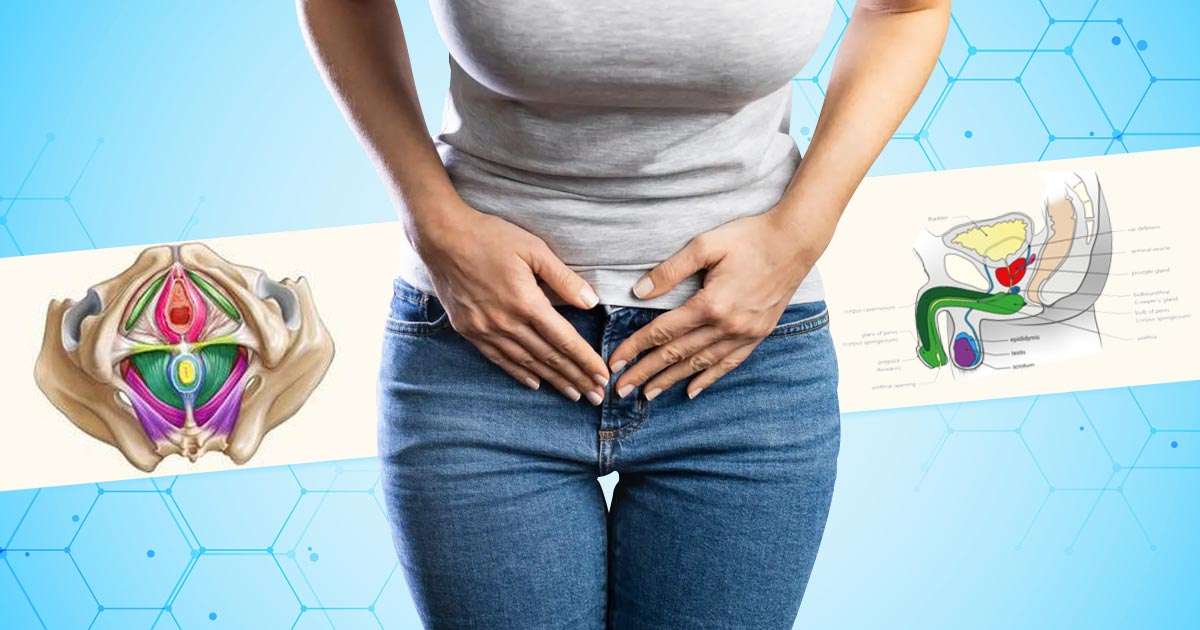Understanding Uterus Spasms: Why Your Uterus is Twitching

Sometimes your eyelid might twitch or you might feel a muscle spasm in your leg or back. But did you know any muscle in your body can spasm, even those in your pelvic floor or uterine walls? You might feel fluttering, dull aches, pressure, or full-on spasms in your pelvic area. If you experience pelvic floor muscle spasms, it’s important to learn what you can do about them.
Why do I feel twitching in my uterus?
When you feel a twitch or fluttering in the uterus, it could mean your pelvic floor or uterus muscles are spasming. Even though you might shrug off twitches elsewhere, like in your eyelid or arm, it’s important to notice these ones. Pelvic floor spasms might start small but can get worse, causing more pain and disruption to your life.
What are uterus spasms?
Pelvic floor spasms happen when the muscles in your pelvic area suddenly tighten up. This can lead to different problems, like:
- Pain in the pelvic region
- Feeling pain when peeing often
- Pain during sex
- Trouble peeing
- Constipation
- Aches in the lower back
- Feeling pressure or pain in the vagina or rectum
Some women say the symptoms of fluttering in pelvis or pelvic floor spasms feel like they have a bladder infection, but tests show no signs of infection.
What causes uterus spasms?
Lots of things can mess with your pelvic floor muscles, making them spasm and twitch. Let’s take a look at some reasons why this might happen.
- When your pelvic floor muscles get too tight, it can lead to a condition called hypertonic pelvic floor dysfunction. This tightness reduces blood flow and oxygen, increases lactic acid, and can cause pain in your pelvis.
- Conditions like injuries, fibrosis, inflammation, or pelvic inflammatory disease can also make your pelvic muscles spasm. Endometriosis and the scars it leaves behind can pull on these muscles, causing spasms and pain.
- Having babies, getting episiotomies, pelvic surgeries, or other pelvic injuries might also make your pelvic muscles spasm. Even connective tissue disorders can make them tight and cause spasms.
- Activities like intense workouts, heavy lifting, straining during bowel movements, or being overweight can put extra pressure on your pelvic floor, leading to muscle spasms or your uterus pulsing.
Other Reasons for Movement in Lower Abdomen
Below are common reasons for muscle twitching in the pelvic area:
Digestion
When you eat, the muscles in your stomach and intestines start moving to push the food through your body. You might feel these movements right after eating or even a few hours later.
Indigestion
Sometimes, when your stomach doesn’t digest food properly, it’s called indigestion. This can make you feel:
- Heartburn
- Nauseous
- Stomach ache
- Bloated
- Throw up
Sometimes, you might feel like your stomach is being gnawed at. You can treat indigestion at home with medicines called antacids that you can buy without a prescription. But if you have a lot, or if you start throwing up a lot, have black stools, or lose weight without trying, it’s important to see a doctor.
Ovulation
During your period, you might feel cramps in your lower belly. It can make your muscles feel tight, almost like they’re moving. When you’re ovulating, sometimes you might feel little jumps or pops in your lower belly. That’s usually because your ovary is stretching to let out an egg. It’s usually not a big deal and doesn’t last long.
Muscle Spasm
Just like how your arms or legs can suddenly tighten up, the muscles in your belly can do the same. These tight squeezes happen without your control and can be because your muscles are tired or strained. Sometimes, it might be because you’re not drinking enough water. Usually, these spasms aren’t a big deal and will go away on their own. But if they keep happening or get really bad, it’s a good idea to talk to your doctor. They might want to figure out why it’s happening and help you feel better.
Phantom Kicks
Sometimes, people who’ve had a baby might feel like they’re having baby kicks even when they’re not pregnant anymore. This feeling is called phantom kicks. It usually happens right after having a baby, but some people feel it even years later. And it’s not just for people who’ve had babies; some who’ve had a miscarriage or abortion might feel it too.
Allergic reaction
If you feel fluttering or twitching in your belly after eating, it might mean your body is having an allergic reaction to something in your food. This isn’t common, but it could be linked to celiac disease, which is when your body reacts badly to gluten. To stop these movements and other celiac symptoms like bloating, stomach pain, diarrhea, constipation, vomiting, and losing weight, you might need to avoid foods with gluten.
Pregnancy
During pregnancy, you’ll start feeling movement in your belly as your baby grows. This is called quickening, and it usually happens between 16 and 25 weeks into your pregnancy, mainly in the second trimester. By the third trimester, you should feel these movements regularly. With later pregnancies, you might feel them sooner since your body is familiar, but it can vary for everyone.
Pay Closer Attention to Your Body When Your Uterus is Twitching
Notice the movements in your body, especially in your pelvic area. Pay attention to any fluttering, twitching, or spasms you feel, as they could be signs of various conditions like pelvic floor dysfunction, indigestion, or even pregnancy. If you’re experiencing persistent symptoms or discomfort, don’t hesitate to reach out to a healthcare provider for guidance and support. Your health matters, so take care of yourself and seek the help you need.

